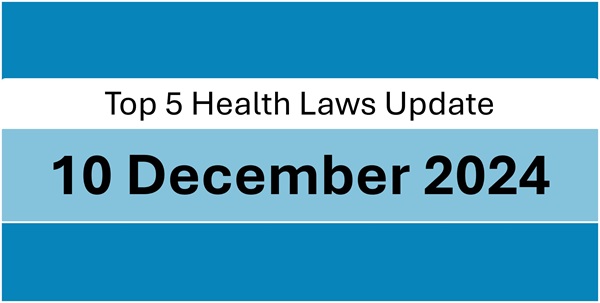Dear Readers, we are happy to share the most interesting legal and policy updates concerning health industry that we read today. We hope you enjoy reading it.
1. India’s Ministry of Environment, Forest, and Climate Change has released draft rules under the Environment Protection Act, 1986, proposing Extended Producer Responsibility (EPR) for managing post-consumer waste from paper, glass and metal packaging along with sanitary products. These Rules aim to promote recycling, reuse, and waste-to-energy initiatives. Producers, importers, and brand owners must register and meet EPR targets from April 2026.
Source: bit.ly/49w0GFK
2. India’s Central Pollution Control Board (CPCB) has regulated the micro and small importers, producers, sellers and manufacturers of plastic raw materials and have mandated their registration on the EPR Plastic Portal. Filing of annual returns and compliance with all other EPR obligations is also outlined in the guidance issued by CPCB.
Source: bit.ly/49CJo9Z
3. India’s Supreme Court has reiterated that Ayurvedic/AYUSH doctors cannot claim parity with allopathic doctors, citing differences in academic qualifications and the standards of their respective courses. The court dismissed a petition by AYUSH doctors in Kerala, referring to past judgments that clarified the distinction in responsibilities and remuneration between allopathic and AYUSH practitioners.
Source: bit.ly/4iqyYhN
4. India’s Delhi District Consumer Commission has fined a leading FMCG company with a fine of ₹15 lakh for misleading advertisements about its “Fair and Handsome” cream, which claimed to provide fairness within three weeks without proper evidence. The Commission found the claims deceptive and an unfair trade practice, ordering the company to withdraw all misleading ads and packaging.
Source: bit.ly/3OPcMjE
5. India’s Central Drugs Standard Control Organization (CDSCO) has issued a circular thereby directing all State and Union Territory Drugs Controllers to ensure the approval of drugs and medical devices for rare diseases within 90 days of receiving applications to expedite the regulatory process and support faster access to treatment for rare diseases.
Source: bit.ly/3VvSFLl

